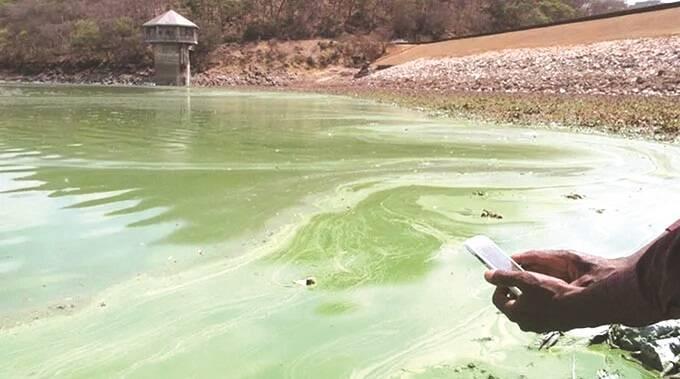News / National
Fishing ban on Lake Chivero to stay
9 hrs ago | Views

The government has maintained its ban on fishing activities in Lake Chivero, citing serious environmental and public health risks linked to ongoing contamination of the water body.
Responding to a question in Parliament last Wednesday, Environment, Climate and Wildlife Minister Evelyn Ndlovu said Cabinet had reaffirmed the ban due to significant pollution from untreated industrial effluent and raw sewage discharged by surrounding local authorities, including Norton.
"The ban will not be lifted until the root cause of this pollution is comprehensively addressed by the three local authorities around that place," Ndlovu said.
She emphasised that while previous assessments suggested that fish from the lake might be safe for consumption, Cabinet had taken a holistic view, concluding that the overall contamination of the lake posed unacceptable health and ecological risks.
"In line with Cabinet's directive, my ministry is coordinating a multi-stakeholder response to address the pollution crisis. This includes stricter oversight of industrial and municipal discharges, improved sewage management, and rehabilitation efforts with the City of Harare, EMA and ZimParks," she added.
A time-bound action plan and a joint monitoring framework are being developed, with regular progress updates set to be submitted to the Office of the President and Cabinet and, if necessary, Parliament.
Ndlovu acknowledged the socio-economic impact on communities around the lake but stressed that public health and ecological integrity came first.
"We recognise the importance of fishing livelihoods, but the lake can only be reopened once it is safe and sustainable," she said.
However, MPs raised concerns over the social consequences of the ban.
Zanu-PF's Kudakwashe Mananzva (Zvimba East) warned that "hunger has no patience," urging the government to create alternative livelihood projects.
CCC MP Edwin Mushoriwa (Dzivarasekwa) said the ban had intensified poaching.
"Right now, if you go to areas like Kuwadzana, Dzivarasekwa and Norton, people are still eating that fish courtesy of poachers," Mushoriwa said.
In response, Ndlovu admitted the challenge and said her ministry was working with stakeholders, including fishing cooperatives and the Health ministry, to educate the public on the risks of consuming fish from the polluted lake.
"The law enforcement should be there to protect our people from eating such fish," she said.
The ban, which has been in force since last year, will remain until the government resolves the pollution crisis and restores Lake Chivero to safe ecological standards.
Responding to a question in Parliament last Wednesday, Environment, Climate and Wildlife Minister Evelyn Ndlovu said Cabinet had reaffirmed the ban due to significant pollution from untreated industrial effluent and raw sewage discharged by surrounding local authorities, including Norton.
"The ban will not be lifted until the root cause of this pollution is comprehensively addressed by the three local authorities around that place," Ndlovu said.
She emphasised that while previous assessments suggested that fish from the lake might be safe for consumption, Cabinet had taken a holistic view, concluding that the overall contamination of the lake posed unacceptable health and ecological risks.
"In line with Cabinet's directive, my ministry is coordinating a multi-stakeholder response to address the pollution crisis. This includes stricter oversight of industrial and municipal discharges, improved sewage management, and rehabilitation efforts with the City of Harare, EMA and ZimParks," she added.
A time-bound action plan and a joint monitoring framework are being developed, with regular progress updates set to be submitted to the Office of the President and Cabinet and, if necessary, Parliament.
Ndlovu acknowledged the socio-economic impact on communities around the lake but stressed that public health and ecological integrity came first.
"We recognise the importance of fishing livelihoods, but the lake can only be reopened once it is safe and sustainable," she said.
However, MPs raised concerns over the social consequences of the ban.
Zanu-PF's Kudakwashe Mananzva (Zvimba East) warned that "hunger has no patience," urging the government to create alternative livelihood projects.
CCC MP Edwin Mushoriwa (Dzivarasekwa) said the ban had intensified poaching.
"Right now, if you go to areas like Kuwadzana, Dzivarasekwa and Norton, people are still eating that fish courtesy of poachers," Mushoriwa said.
In response, Ndlovu admitted the challenge and said her ministry was working with stakeholders, including fishing cooperatives and the Health ministry, to educate the public on the risks of consuming fish from the polluted lake.
"The law enforcement should be there to protect our people from eating such fish," she said.
The ban, which has been in force since last year, will remain until the government resolves the pollution crisis and restores Lake Chivero to safe ecological standards.
Source - NewZimbabwe














